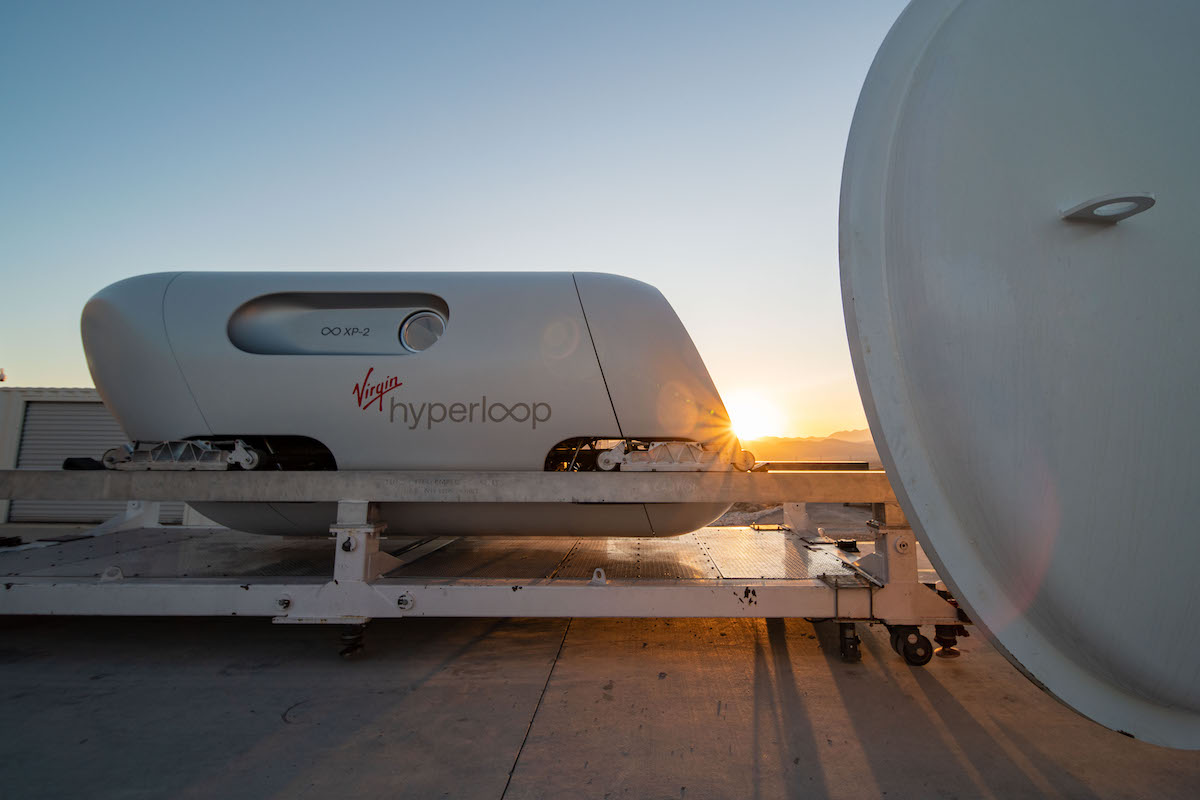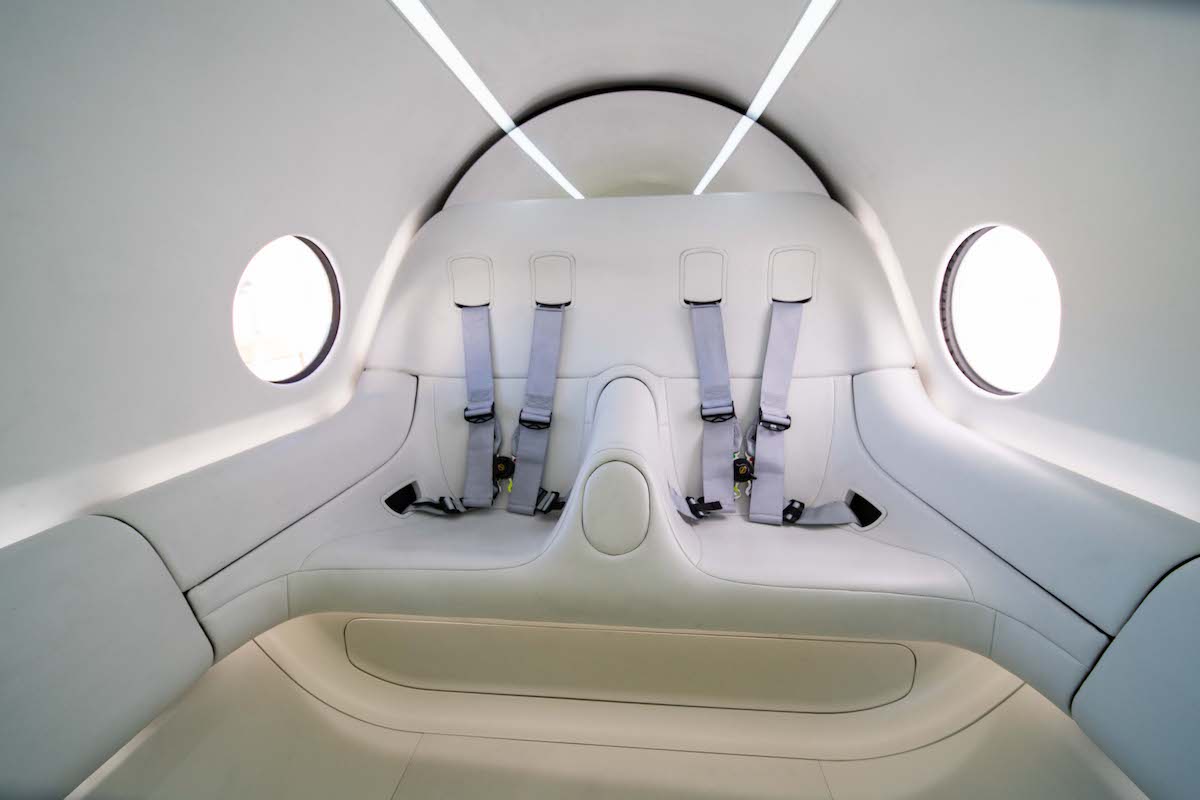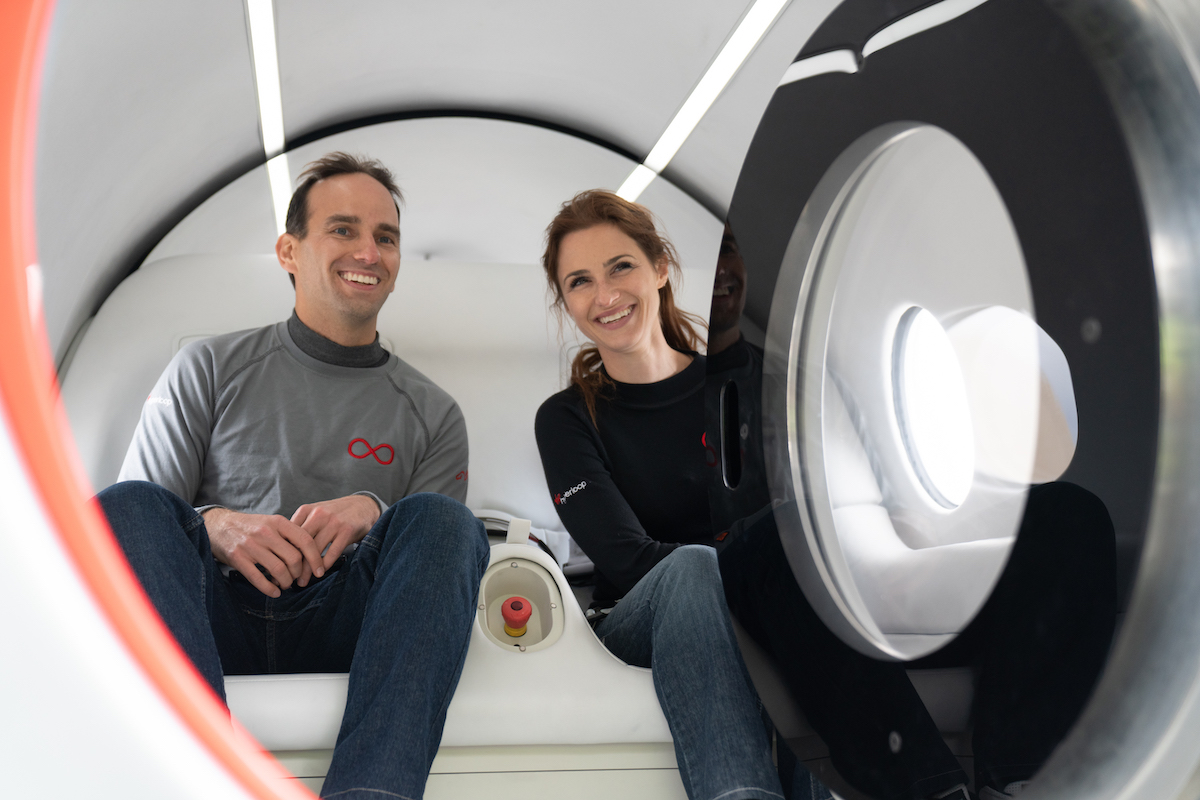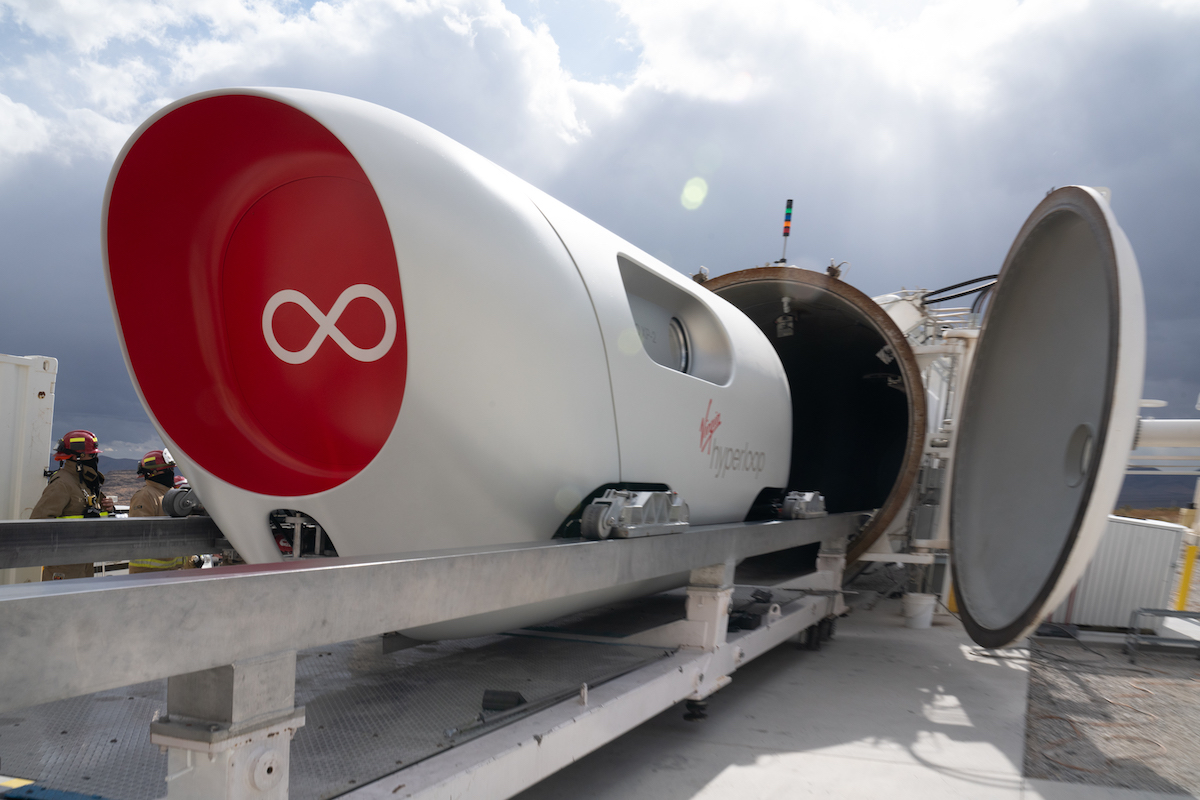A hyperloop system has transported its first-ever passengers in a landmark test of the ultra-high-speed transportation technology.
The successful trial run was conducted by Virgin Hyperloop at its 500-meter DevLoop test site in Las Vegas, Nevada, on Sunday, November 8.
Virgin Hyperloop’s chief technology officer Josh Giegel and director of customer experience Sara Luchian (pictured in the gallery below) traveled the full length of the track in the company’s newly unveiled two-seat XP-2 test vehicle, reaching a top speed of 107 mph (172 kph). While this is considerably slower than the eventual target speed of 760 mph (about 1,223 kph), Virgin says the trial run “demonstrates that passengers can in fact safely travel in a hyperloop vehicle.” Previous tests without passengers have seen a Virgin hyperloop pod hit speeds of 240 mph (386 kph).
“I can’t tell you how often I get asked ‘is hyperloop safe?’” said Jay Walder, CEO of Virgin Hyperloop. “With today’s passenger testing, we have successfully answered this question, demonstrating that not only can Virgin Hyperloop safely put a person in a pod in a vacuum environment, but that the company has a thoughtful approach to safety which has been validated by an independent third party.”
Virgin Hyperloop’s design combines an ultra-efficient electric motor, magnetic levitation, and a low-drag environment to propel passenger-carrying pods at airline speeds through specially built tubes above or below ground. Virgin is aiming to have its zero-emissions hyperloop system attain safety certification by 2025, with an eye on launching commercial operations with 28-person passenger pods by 2030.
If such a transportation system comes to fruition, a hyperloop journey between Los Angeles and San Francisco, for example, would take just half-an-hour as opposed to six hours by car.
“For the past few years, the Virgin Hyperloop team has been working on turning its ground-breaking technology into reality,” Sir Richard Branson, founder of the Virgin Group, said in a release. “With today’s successful test, we have shown that this spirit of innovation will in fact change the way people everywhere live, work, and travel in the years to come.”
The idea for the current version of hyperloop was first mooted by SpaceX and Tesla boss Elon Musk in 2012 following his frustration with the constant crawl of L.A.traffic.
Musk handed development of the technology to other firms that include not only Virgin but also Hyperloop Transportation Technologies, though the billionaire entrepreneur continues to demonstrate his support by attending contests and other events showcasing advances in hyperloop systems.
A number of countries have shown interest in using the technology to transport goods and people. Virgin Hyperloop’s successful test this weekend test takes us another step toward such a reality, though with at least a decade of further development required, and regulatory hurdles to overcome, the annoyance of having to sit in traffic or wait for planes and trains is set to continue for a while yet.






